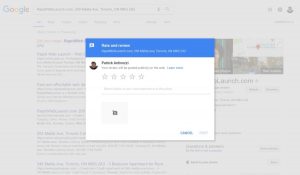
There are 20 months between the birthdates of my first child and my set of twins.
From the day we finally left the hospital and started strolling around with our crew, my husband and I became experts at dodging super-personal and inappropriate advice from random strangers.
Like the time a lady randomly told me I should blow cigarette smoke in the babies’ ears if they get an earache. Yep. Not making that up.
Or the dozens who made observations (out loud) on breastfeeding techniques for twins as I was juggling the special formula they required, trying to keep two infant carriers from falling off the shopping cart, and carrying a 2 year old on my hip. Thanks.
I am the American Ninja Warrior of unsolicited advice deflectors.
This skill has served me well in the world of online community building, where conflicting advice bombards us constantly:
- You must use a blog commenting system
- You must turn off blog comments
- You have to go find your community on Facebook
- You have to buy a platform and make your own community
- You need to leverage forums for marketing
- Forums are dead
- Google+ is crucial to your SEO strategy
- Google+ is a ghost town
Picture me bobbing and weaving, dodging the debris above like Keanu in the Matrix.
When it comes to online community, there are strongly held opinions on all sides. Almost like the C-section/natural birth wars (don’t even go there). You need to tune out all of that noise and forge your own path.
Those people don’t know anything about your business, your network, or your customers. They have no idea what type of community will work in your particular situation.
If you’re trying to evaluate whether leveraging an online community might be good for your business, consider the following:
1. Are you ready for it
Let’s be real. You already have a community, whether you are participating in it or not. Your customers, fans, and enemies are already out there talking. The question is, are you ready to help them coalesce around you?
Online community is a long game, not a quick hit. Are you ready to devote time and resources to nurturing it? If the answer is no, you’re not ready yet. Spend this time building stronger relationships and making your product or service worth talking about.
2. What type of community serves your customers best
Explore your readiness by reaching out directly to your small, core group of champions.
In order to nurture a community, it’s best to designate a community manager (even if it’s part-time).
Find out what they need, how they want to communicate, and what types of content or conversation would be most useful to them. That’s right, it’s not really about you. It’s about service, and you must be a giver, not a taker, when it comes to fostering an online community.
Consider whether the best scenario is a public-facing community or a private one. Communities of practice or health support communities often work best as a safe, private space.
3. How can you leverage it
If you’ve decided you’re ready to bring your community together, and you’ve discovered the general type of community your customers want, it’s time to decide what success will look like.
This is another area where unsolicited advice is rampant.
Your success metrics will look drastically different from anyone else’s, because your customers, their needs, and your business plan will look drastically different.
Types of business communities and ideas for success metrics:
- Customer support (staff and/or peer-to-peer support) – faster resolution of customer issues
- FAQ/knowledge base – reduction in support calls
- Market research – reduction in cost for focus groups, faster turnaround for research projects
- Partner programs – reduction in outreach costs through economies of scale (share information once to many partners)
- Blogger/influencer outreach – increased number of social shares, increased domain authority
- Affinity group/fan site – increased brand awareness (more mentions, higher traffic)
- Ideation – increased customer satisfaction, more rapid development cycle
- Communities of practice – increased collaboration, relationship building among association members, higher membership
- Event community – increased registration for event, increased awareness
- Author community – increased spread of message, increased book sales
- Intranet/corporate communications – increased employee satisfaction, better communications
Don’t let me tell you how to approach your online community.
Go about it strategically, and serve your community members in a way that suits them.
And if you ever meet a mom of twins, just smile. No advice needed, thanks.
(261)
Report Post








